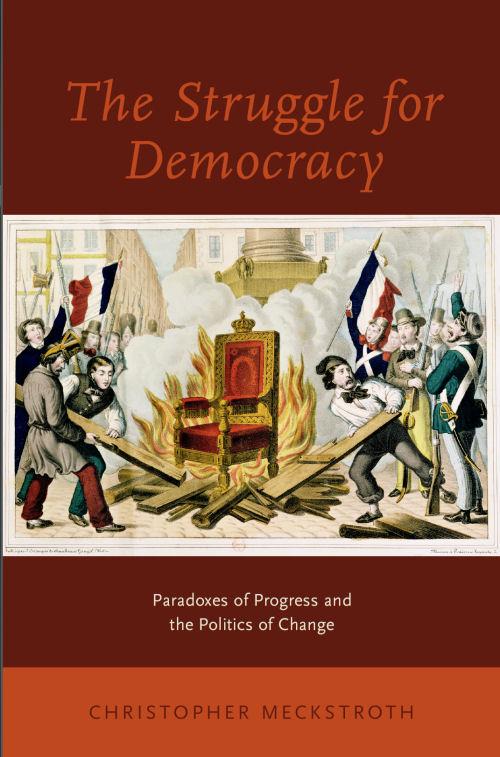The Struggle for Democracy: Paradoxes of Progress and the Politics of Change
When political factions compete over the right to act in the “people’s” name, who is to decide? This problem was left unresolved by the great seventeenth- and eighteenth-century theorists of popular sovereignty and their critics, and it is little closer to being solved today.
This book defends a new democratic theory which argues that familiar attempts to define democracy in terms of timeless principles or institutions can only fall into paradox when faced with struggles over democratic founding and change. The proposed solution is to begin instead from the act of democratic judgment, and to consider the conditions that an outcome would have to meet if it were to count as a case of the people deciding what it will mean to govern themselves in a democratic way. The only way to work this out without stacking the deck is then to show, in Socratic fashion, that some parties’ claims to speak for “the people” cannot hold up consistently even on their own terms.
The book defends controversial interpretations of Plato, Kant, and Hegel to show how familiar portrayals of each as seeking to ground politics directly in metaphysical foundations obscures an important tradition of radically antifoundational argument in the history of political thought. And then it reworks this sort of argument in a thoroughly democratic direction to defend a historical and Socratic theory of democracy that advances an entirely new approach to contested notions of progress, popular sovereignty, and democratic change.

Meckstroth, Christopher. The Struggle for Democracy : Paradoxes of Progress and the Politics of Change. Oxford University Press, 2015
